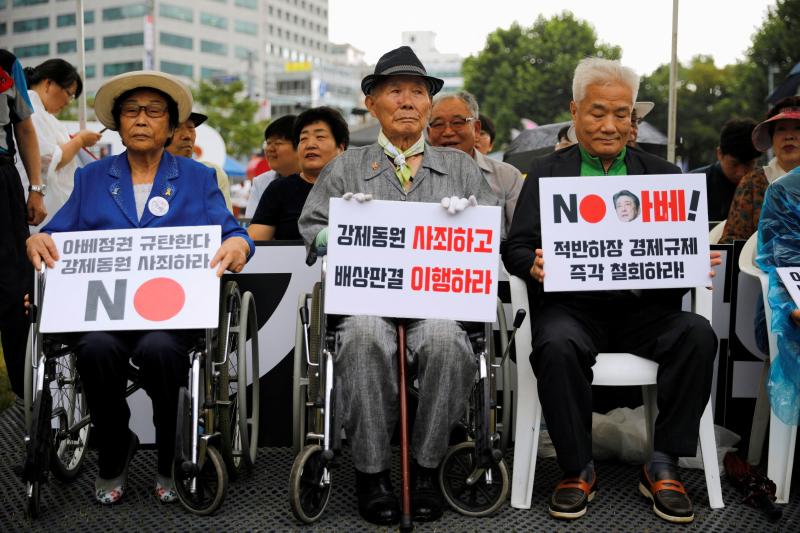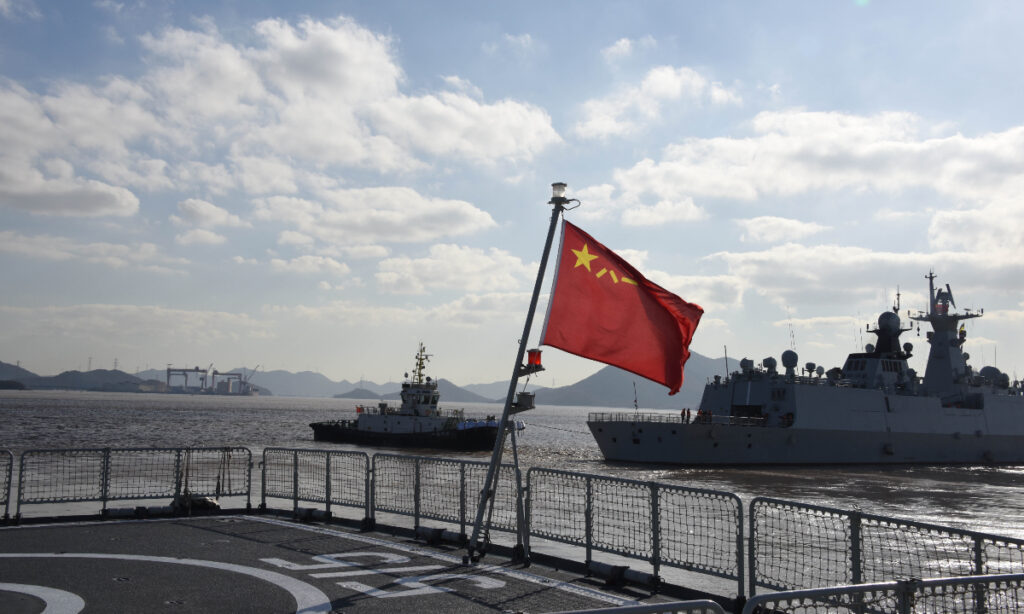From alliance protection to alliance projection. The rapprochement between two long-time adversaries with deeply held historical grievances marks the beginning of a new security chapter in Asia and the Indo-Pacific.
Last week, South Korean President Yoon Suk Yeol and Japanese Prime Minister Kishida Fumio met together with U.S. President Joe Biden, in a historic summit which outlined commitments of long-time foes South Korea and Japan to expand cooperation trilaterally with the United States.
Specifically, the joint communique released by the three leaders identifies cooperation with an intention to uphold the ‘rules-based international order’, continued efforts to defend and denuclearize the Korean Peninsula, and enhanced collaboration in economic, scientific, and technological innovation.
Tangible outputs from the meeting include agreements to improve trilateral mechanisms facilitating ‘regular and timely communication’ between leadership teams, in addition to increased military-to-military co-operation between the ROK and Japan.
Yet, the significance of the summit lies not in its tangibles but its symbolic embodiment of rapprochement between two long-time adversaries to counter common threats in the region.
How South Korea and Japan will co-operate against North Korea on defence
The existential threat of WMDs is once-again a poignant one, thanks to the global-cinematic success of Oppenheimer. In South Korea, such threats are very real indeed.
On Wednesday 23rd August 2023, millions of South Koreans took part in a nationwide civil defence drill – the first in six years – amidst rising threats from North Korea. In an eerie affair, minute-long air-raid sirens signalled residents to evacuate to the nearest bomb shelter. The U.S. nuclear umbrella is committed to defending the South in the event of an attack.
For Japan, North Korea posing a direct threat is a more recent phenomenon, thanks to the North’s advancements in its ballistic missile programme. In July, North Korea fired a ballistic missile which landed within Japanese maritime waters. Co-operation with South Korea and the United States on ballistic missile defence has become an increasing priority, but not the foremost priority.
It’s the economy…stupid? Economics underpins ROK-Japan rapprochement
The most pressing national security concern of both Japan and the ROK today is China. China’s ability to hold-at-ransom the economies and supply chains of the ROK and Japan is perceived as a major strategic vulnerability, given its increasingly assertive behaviour in the Indo-Pacific.
The joint communique issued from Camp David identifies explicitly ’dangerous, aggressive, and coercive behaviour’ by China in the South China Sea as troublesome. The fact this concern is voiced ahead of concerns regarding North Korea is no coincidence.
China is the largest trading partner to both Japan and the ROK. The two have thus negotiated a careful balancing act historically, as key U.S. military allies, but with strong economic linkages with Chinese markets.
However, a strategic shift has clearly occurred, with both the ROK and Japan now in near-full strategic alignment with U.S. foreign policy toward China marking a transition from alliance protection to alliance projection.
What’s changed?
This year, South Korean President Yoon Seok Yul announced an agreement detailing the ROK would no longer demand that Japanese companies compensate Korean victims of wartime forced labor, with a state-run foundation funded by private companies instead footing the bill.
The enslavement of many Koreans as part of Japan’s forceful occupation of Korea between 1910 and 1945 has long remained wedged in the Korean psyche and had been a key inflection point in a tumultuous bilateral relationship. Under Japanese occupation, over 150,000 Koreans were forced to work in factories and mines, some to enlist as soldiers, or in the case of many Korean women – work in military brothels to service Japanese soldiers.

Despite strong domestic opposition to the deal, it seems President Yoon Suk Yeol saw the settlement as an acceptable means-to-an-end of hostilities between the two nations, and the beginning of a new chapter of co-operation against an increasingly assertive China. This was undoubtedly mediated by the U.S., representing a seriously impressive piece of diplomacy by the Biden administration, and a symbolic moment demarcating a new age of Japan-ROK relations.
China views the Camp David summit as a further step taken by the U.S. in its attempts to forge a NATO for the Indo-Pacific

China views tri-lateral co-operation as part of U.S. plans to forge a NATO for the Indo-Pacific to contain China. Last month, NATO held its annual summit in Vilneus. With the ROK and Japan both present, as well as Australia and New Zealand. A joint statement released from the summit took aim at China and the PRC.
Meanwhile, talks have begun to open a NATO liaison office in Japan – the first in Asia. The U.S. denies development of a NATO for the Pacific, but it’s easy to sympathize with Chinese accusations that the U.S. is playing cold war bloc politics amidst other new security initiatives announced in the region. AUKUS is a trilateral security agreement between Australia, The United Kingdom, and the United States where the latter will provide the former with nuclear submarines for patrol in the Indo-Pacific. Whilst the QUAD is another U.S. led strategic security initiative to counter Chinese influence, with Australia, Japan, and India partners.
In much of Asia, the shadow of colonialism and hard-fought independence taints the ideal of submission to a Western-led security alliance. This begs the question as to whether such developments represent a NATO for the Indo-Pacific, or NATO in the Indo-Pacific. The prospect of NATO expansion brought war to Ukraine. Having already poked the bear, the U.S. and its allies now risk poking the panda.


